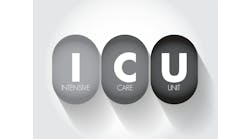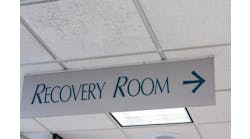Could Physicians Be ‘Nudged’ to Adopt Evidence-Based Clinical Decisions?
The behavioral concept of a "nudge" — influencing decision-making without restricting choice— has drawn interest from healthcare organizations seeking to help patients make lifestyle changes. But the same principles are also being studied to help clinicians make changes in their practice.
Safiya Richardson, M.D., has been awarded a five-year, $850,000 National Institutes of Health (NIH) grant to support her work in creating tools that help doctors make evidence-based clinical decisions.
Richardson, an assistant professor and junior faculty researcher at the Feinstein Institute for Medical Research, the research arm of Northwell Health in Manhasset, N.Y., notes that the lack of evidenced-based clinical practice is estimated to be responsible for a third of hospital deaths and a loss of almost $380 billion each year. Researchers believe these deaths could be avoided with the development of evidence-based health information technology.
"We are focusing on a significant problem for the health of the nation, the gap between usual and evidence-based clinical practice," said Richardson, in a prepared statement. "Our research indicates that new information technology coupled with tangible behavioral science theory can help mitigate this issue."
Richardson, under the mentorship of Tom McGinn, M.D., professor in Feinstein Institute's Center for Health Innovations and Outcomes Research, will develop various tool prototypes and test them with doctors. The grant also includes funding for career development activities, including formal training in health informatics, behavioral science, mixed methods and clinical trial design.
"NIH recognition of Dr. Richardson's research highlights the important advances in health information technology and behavior sciences stemming from the Feinstein Institute and Northwell, and our commitment to improving clinical outcomes through research," said Kevin J. Tracey, M.D., president and CEO of the Feinstein Institute, in a statement.
In 2016, Penn Medicine launched a “Nudge Unit” to systematically develop and test approaches using nudges to improve healthcare delivery. Last year its team wrote a paper in NEJM Catalyst about its efforts.

